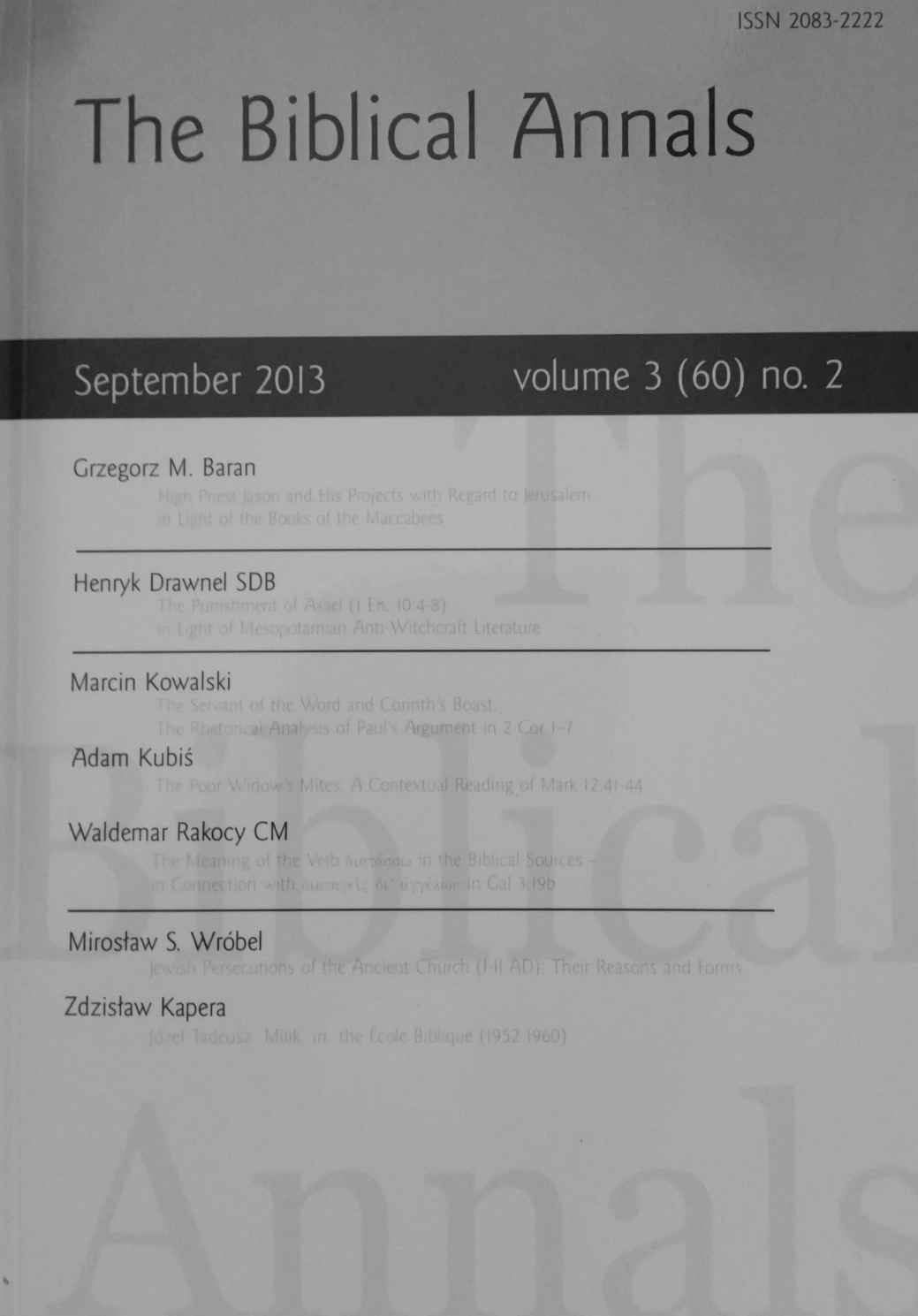Sługa słowa i chluba Koryntu.
The Servant of the Word and Corinth’s Boast.
The Literary-Rhetorical Analysis of Paul’s Argumentation in 2 Cor 1–7.
Author(s): Marcin KowalskiSubject(s): Christian Theology and Religion, History of Religion
Published by: Katolicki Uniwersytet Lubelski Jana Pawła II - Wydział Teologii
Keywords: 2 Cor 1–7; ancient rhetoric; rhetorical dispositio; epistolary model; oral model; Paul’s argument
Summary/Abstract: The purpose of the present article lies in finding an interpretative key for the plethora of topics exposed in 2 Cor 1–7. The author makes a review of the epistolary and oral elements present in the analyzed text, critically examines the proposals of the scholars spotting chiastic and concentric compositions in 2 Cor 1–7, and puts forward his own division of the discussed literary unit. The rhetorical dispostio model is chosen as the one which in the most adequate way describes the development of Paul’s thought in the analyzed section. In the last part of the article the author differentiates and describes the elements of the dispositio rhetorica in 2 Cor 1–7: thesis in 1,12-14; probatio in 1,15–6,10; exhortationes in 6,11–7,3, and peroratio in 7,4-16. In the first seven chapters of the 2 Corinthians Paul boasts in his apostolate, the authenticity of which is proved by selfless motivations, sufferings and Apostle’s striving for God’s glory. 2 Cor 1–7, by exposing the ethos of the Apostle, prepares his argument on the Jerusalem collection (2 Cor 8–9) and his final clash with opponents in 2 Cor 10–13.
Journal: The Biblical Annals
- Issue Year: 3/2013
- Issue No: 60/2
- Page Range: 309-338
- Page Count: 28
- Language: English, Polish

